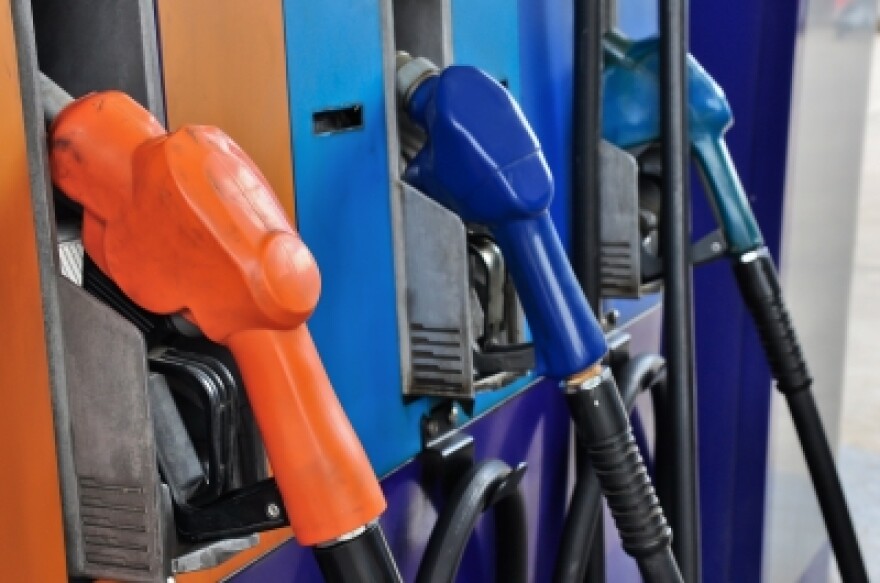While state transportation departments around the country have been scrambling in anticipation of a potential Highway Trust Fund insolvency, Florida officials aren’t sweating quite yet.
The U.S. Department of Transportation estimates that the Highway Trust Fund, which trickles down and helps pay for everything from highways to sidewalks, will run out of money in August. The U.S. House of Representatives has already passed a bill that would temporarily fix the problem.
President Obama has said an insolvency could affect 100,000 projects across the country. Some states, have reportedly already slowed down construction projects in anticipation of problems.
But the Florida Department of Transportation says it’s in relatively good shape even if Congress fails to pass a temporary fix.
FDOT “gets about 26 percent of its annual work program from federal sources,” says District Four spokesman Chuck McGinness.
By comparison, the Georgia Department of Transportation gets “at least 60 percent” of its revenue from federal funding, according to a GDOT spokesperson.
FDOT says it hasn’t made a specific list of projects that would be shut down if the federal fund became insolvent. But McGinness says the department would prioritize safety-centric projects: Replacing rusted traffic-signal poles in Delray Beach, for example, or making sure traffic signals work along hurricane evacuation routes.
Then would come maintenance projects like resurfacing.
One of the reasons why we are in better shape than most states is because our state gas tax is indexed to inflation.
One of South Florida’s biggest projects, the expansion of the I-95 express lanes into Broward County, is neither a safety nor a maintenance project. Still, McGinness says it’s a high priority project and “would probably be one that we would not shut down.”
FDOT also has enough money in the state trust fund to keep paying contractors for three to six months if federal money stops flowing.
“One of the reasons why we are in better shape than most states,” McGinness says, “is because our state gas tax is indexed to inflation. So it goes up gradually each year unlike the federal gas tax which has remained stable for quite a number of years.”
For every gallon of gas purchased in the United States, 18.4 cents gets kicked up to Washington. The fuel tax -- comprised of the gas tax and the more expensive alternative fuels tax -- accounts for about 90 percent of the Highway Trust Fund.

The Problem
“Think about it this way,” says David Ellis, a highway funding expert at the Texas A&M Transportation Institute. “You or I, we go down and we buy a shirt, OK? And we pay a sales tax on that shirt.”
But the tax isn’t really on the shirt, Ellis says, it’s on the cost of the shirt. If inflation happens to push the price of a “Mile Marker 0” shirt up in Key West, the buyer just pays 7.5 percent of a more expensive shirt. The taxman still gets his cut. In that sense, sales tax is inflation proof.
The gas tax, on the other hand, “was 18.4 cents when it was passed in 1993 and it’s still 18.4 cents,” Ellis says. “What happens is, every year the price of construction goes up. But you’re still getting 18.4 cents a gallon. That tax revenue purchases a little bit less construction.”
Add in the fact that cars are getting more fuel-efficient -- some cars don’t even use fuel -- and that’s the Highway Trust Fund problem in a nutshell.
Not (Really) Worried
While Florida’s state officials aren’t so worried, local transportation authorities have expressed slightly larger concern. Broward’s Metropolitan Planning Organization says anything with federal funding is at risk of being slowed if the Highway Trust Fund goes into the red. That includes everything from the Wave streetcar project in Fort Lauderdale to a $100 million sidewalk project.
A spokesman for Miami-Dade County’s MPO says, like FDOT, the organization isn’t making a list of potentially affected projects yet.
“Well, I don’t think we’re feeling nervous at this time about being paid for ongoing contracts,” says Bob Burleson, president of the Florida Transportation Builders Association.
Work stoppages are certainly not impossible, Burleson says, but he agrees Florida is in a relatively good position.
“The workers out in the field, the crane operators, the carpenters,” says Burleson, “I think their feeling is that, in the end, sort of like everything congress seems to do lately, at the very last minute when all else fails they’ll figure out a way to get it done.”





